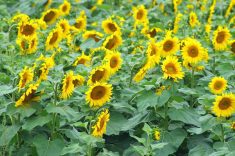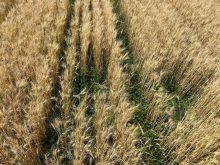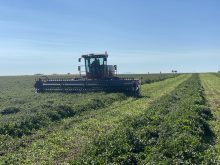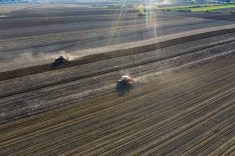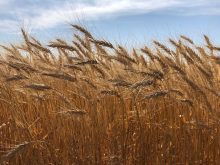Table 1 -Seeding Input Costs -160 acres
Type of crop
Canola
Durum
Feed Barley
Cost of Equipment per acre
19.59
19.59
19.59
Cost of
Seed per acre
27.25
18.87
9.9
Nitrogen
27.5
27.5
27.5
Phos Sulphur + others
3.9
0
0
Total Cost per Acre
86.44
78.26
69.29
Table 2 -Amount of Overlap
Overlap (ft)
Read Also
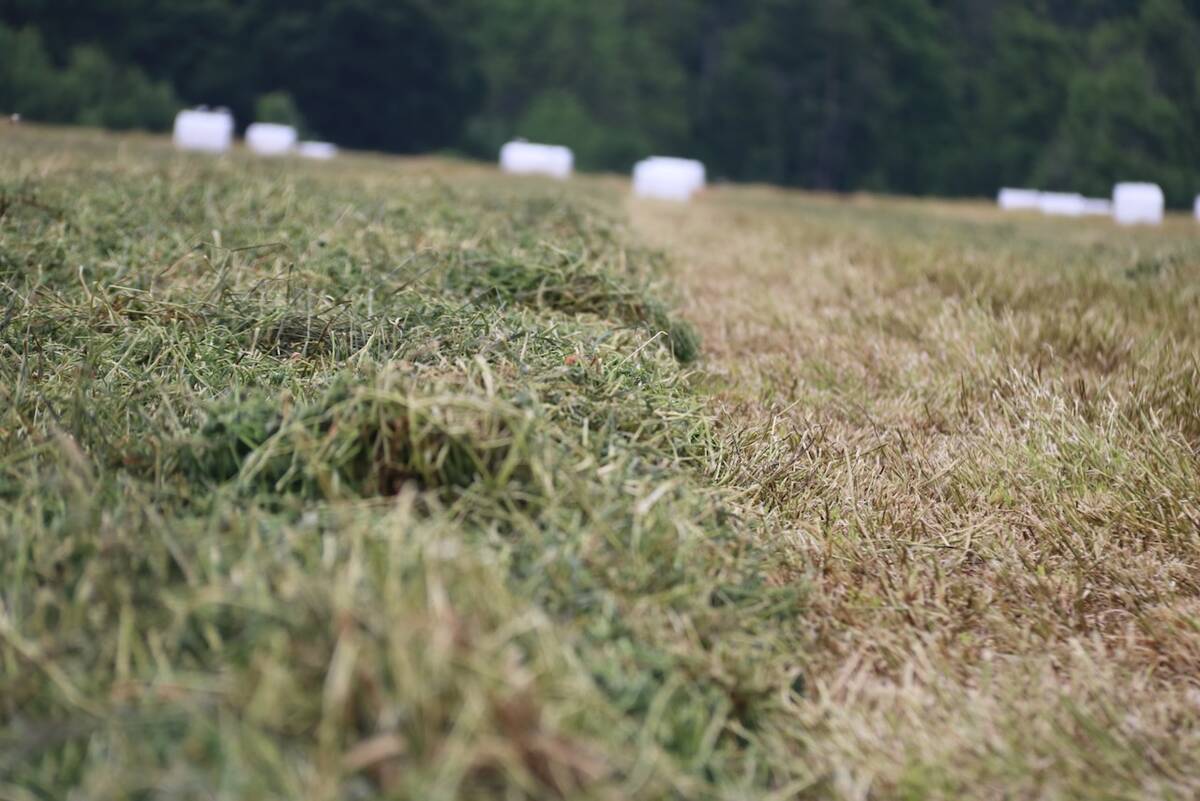
New high-performance forage training program to launch in 2026
A new Canadian Forage and Grasslands Asssociation high-performance forage program will be a resource for farmers, agronomists and others in the forage sector.
0
1
2
3
4
5
effective seeder width
55
54
53
52
51
50
Now takes this number of
passes
48
49
50
51
52
53
length of travel
subtracting 2 headland passes
at each end
2420
2424
2428
2432
2436
2440
Area overlapped in headlands (ft2)
0
5280
10560
15840
21120
26400
Area overlapped in remainder of
field (ft2)
0
116352
237944
364800
496944
634400
Total Area overlapped (ft2)
0
121632
248504
380640
518064
660800
Total Area overlapped (acre)
0
2.7922865
5.70486685
8.73829201
11.8931129
15.1698806
Table 3 -Cost by Crop of Overlap for Seeding
Cost of overlapping on a quarter section($)
overlap (ft)
0 1
2 3
4
5
CANOLA
Cost of overlapping on a quarter section($)
0 241.37
493.13 755.34
1028.04
1311.28
DURUM
0 218.52
446.46 683.86
930.76
1187.19
FEED BARLEY
Cost of overlapping on a quarter section($)
0 193.48
395.29 605.48
824.07
1051.12
Most farmers understand that overlap costs money, and most know that GPS is perhaps the most heavily-marketed solution to the problem. However, what many farmers — including many who have already embraced GPS technology — would like to know is just how much they save in real dollars through precision farming.
The bottom line, says Virginia Nelson, an engineer with the AgTech Centre in Lethbridge, Alta., is that overlap can cost producers plenty of money. In fact, calculations using baseline fuel, fertilizer and equipment costs show that an overlap of just five feet on a canola seeding operation can cost producers over $1,300 in a single quarter section each year.
What it also means is that, in many cases, an investment in GPS technology can quickly pay off.
An additional benefit of automated guidance systems has been an improvement in working conditions, she says. Producers comment frequently on how much easier it is on their bodies when using GPS systems equipped with automated steering.
WHERE THE NUMBERS COME FROM
Analyzing the cost of overlap in seeding and spraying operations involved three steps. The
8.2
12.3
12.3
Calculate amount of overlap
55 foot airdrill with packers and if there is overlap you reduce the effective width of the seeder
first step was to calculate typical input costs for three common crops. The second was to calculate the amount of land surface overlap that occurred with various amounts of equipment overlap. The third was to combine those results to calculate the cost of overlap by crop on a quarter section.
The AgTech Centre calculated its overlap cost estimates based on input costs provided by the Crop Planning Guide 2008 — Dark Brown Soil Zone publication from the Saskatchewan Ministry of Agriculture. For seeding, total costs per acre (including equipment, seed, nitrogen, phosphate, sulphur and other inputs) were estimated to be $86.44 for canola, $78.26 for durum, and $69.29 for feed barley. For spraying, per-acre costs were pegged at $30.95 for canola, $26.98 for durum, and $25.40 for feed barley.
Farm machinery costs were taken from Alberta Agriculture and Rural Development’s Farm Operation Cost Guide 2007. Diesel fuel was assumed to be 75 per litre, while both seeding and spraying equipment was assumed to have logged 400 annual hours of use.
Overlap was determined by calculating factors such as effective equipment width (the equipment width minus overlap), number of passes and length of travel.
“The important thing to remember is that this is a snapshot of what could happen. It goes without saying that these numbers are specific to a given set of circumstances and won’t provide a precise result for every farm in every circumstance,” says Nelson. “However, they do give us an idea of the kind of costs to expect from overlap. In some cases, such as diesel fuel, the costs lean toward the conservative side, making any real-life costs of overlap that much more dramatic.”
CONCLUSIONS
Seeding. The cost of overlap in a seeding operation on all three crops increases substantially for every foot of overlap (See Tables 1 to 3 for the numbers.) The higher cost of canola seed drives the highest penalty of the three categories with a five foot overlap netting an over $1,300 loss. The amount of overlap also takes on extra urgency when translated into acres. An overlap of five feet on a 55-foot drill translates to an overlap of 15 acres per quarter section.
Spraying. The cost of overlap does not translate directly to the spraying side, says Nelson. For example, the cost of overlapping five feet on a quarter section of feed barley in a spraying operation amounts to $154.
“We were surprised there were fewer losses on the spraying side, but that’s partly because many producers are now using 120 foot units which, because of their size, result in fewer passes and thus less chance for overlap.”
Still, at a cost of up to $395 for a 10-foot overlap on a quarter section of canola, there is logic in more precision in spraying operations, says Nelson. “The traditional method of using foam markers is susceptible to evaporation, freezing and drift from wind. Also, the foam is hard to see at night. GPS guidance systems eliminate all of those issues.”
MORE INFORMATION AVAILABLE
More information on overlap is available by contacting the AgTech Centre at 403-329-1212. Results of AgTech’s machinery evaluations, applied and scientific research, and information on its development of innovative agricultural technologies are available to producers to help them make management decisions.
Jeff Melchior is with Meristem Land and Science, based in Calgary. Visit the website at www.meristem.com.




